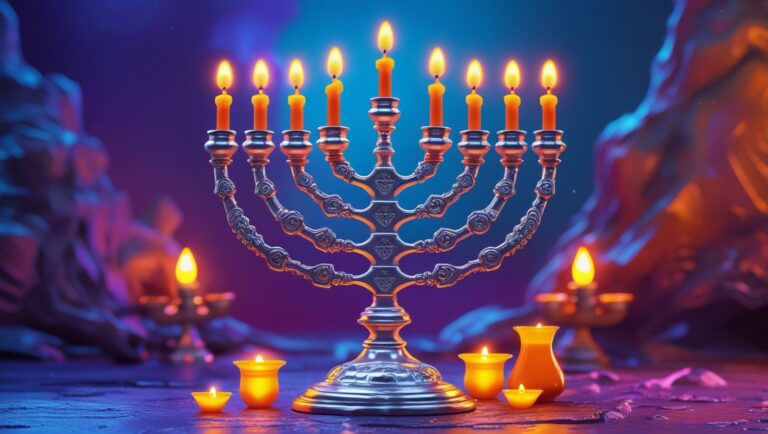True freedom is often mistaken for free choice and is a very elusive concept nowadays.
Many people, under the war cry to demand true freedom don’t really know what it means and what to do with it. They think freedom means doing whatever you want to do without giving any satisfaction to a third party, as long as you are not killing anyone and paying you taxes.
But what is free choice and how can we acquire it?
Continue reading this article in order to learn more about:
- The animalistic type of freedom
- The behavioristic type of freedom
- The real (spiritual) type of freedom

The three types of free choice
There are many types of freedom.
I’m not going to get into the psychological side of the matter here and cite the many schools of thought that have explored this question. I’m just here to give one very comprehensive, logical view on the matter.
So first of all, what’s true freedom supposed to taste like? Nowadays, many are demanding all kinds of it. The discussion is as old as time and, of course, deserves a good answer.
When we consider the concept of choosing, we need to address a few elements in order to understand it. Are choices always equal? Or are some choices higher than others? How do we define whether we are genuinely free?
And, most important of all: what are we, really, to choose something?
Mind you, what will be presented here is definitely not exhaustive. Hopefully this will dispel some of the fake notions people entertain nowadays and open some discussions.
The animalistic type of freedom
For the sake of simplicity, consider you have the “huge” opportunity to choose between having an orange juice and lemon juice.
Would you call that freedom of choice?
In essence, no. We could say “yes”, but that would be a very low, almost animalistic type of free choice.
The reason is because the psychological (and physiological) processes involved in this simple choice are so overwhelming it gives you very little power to chose. Your choice, in this case, is merely a by-product of your genes, your life experiences (remember the orange juice accident that traumatised you?), your taste buds, emotions, and many other heavy factors revolving around it.
The real you, is not in charge and there’s no way you can have true freedom to choose. Even if you decide to childishly go against all of these forces that propel you to choose from one of the options, you’d only be doing so because you were coerced to choose the other one. That’s not really a free choice to begin with.
But was that a pure free choice?
This type of choice has no moral or ethical considerations. It could be aptly called an animalistic type of “freedom” because your true power of free choice is almost non-existent. In a way you are simply doing what these external influences tell you to do (or its exact opposite). And, again, even if you were to chose the other “rejected” option, you’d still be acting with very superficial consciousness on the act, maybe only to “prove the other side is wrong”.
Again, the real you is not in charge. You are merely reacting to the circumstances.
And by “real you”, the soul, the innermost core of your being who really is behind your action, speech and thought processes.
Yet, while we could say that this choice could also have done by the soul, there really is no way of knowing. Having a myriad of external factors influencing you puts everything in doubt.
We simply cannot affirm with absolute certainty that this is what you would have chosen for yourself (though it might indeed be what you would have chosen because, well… you only have 2 choices).

The “behaviouristic” type of freedom
The next notch in the scale of choice is the “behavioristic” type of freedom. I called that because it’s not as low as the first one, but not as high as the next. This is the case when a person has reached a high level of “equanimity”, where nothing can affect him/her.
Choices of this type are made without any considerations outside one’s own intellect and I’d say that only applies in theory because no one is really 100% immune to influences.
So let’s say a person doesn’t care what he’ll drink, what career he’ll pursue and doesn’t mind what comes to him at all. He can choose “more freely” than the in the first type of freedom. Technically.
Then again, another question arises: was it really a choice? If you theoretically eliminate all the elements of a choice, what just happened?
While this can be aptly be considered a higher type of freedom, it’s still dismisses the one who chooses, namely you.
Here, again, the soul is also not fully in charge of the choices.
The real type of freedom
The highest form of freedom is the choice between true good and evil. Ah, bet you didn’t see that coming.
This is because the system of creation is structured in such a way that it necessarily leaves ultimate free choice to us entirely. Hashem cannot (and does not) demand righteousness if it were impossible in any given situation (even though, righteousness here is also a relative term. What is righteous for one might be wickedness to another, and vice-versa).
The Talmud states that “everything is in the hands of Heaven, except fear of Heaven”. This is ultimately what will define the level we are holding on. And, according to the Zohar, the degree of divine perception in Olam HaBa.
In a way, fear of Heaven is truly the only thing what prevents individuals from sinning. Some sins demand more fear of Heaven and some less. Here we would have to also distinguish between one who’s merely religious / spiritual and one who’s internalised true fear of Heaven.
When a person has intense desire to sin, say commit adultery, and he refuses it in the face of opportunity, that’s a direct manifestation of the fear of Heaven of his soul. This is one of the principles of faith and belief in the Creator that is unchangeable. This is the highest and, really, only true free choice we have.
The bottom line of freedom
From an atheistic point of view, there would be little moral ground to prevent someone from committing adultery… after all, aren’t we all “sacks of meat” animated by a bunch of chemical processes? Could there be enough moral and ethical justification for preventing a man from taking another’s wife?
Highly doubtful, because even if a person were to argue “I wouldn’t want that done to me” or that “sexual immorality has been the downfall of civilization” (as demonstrated by Doctor Joseph Unwyn), that’s still not a strong enough moral deterrent to justify not committing the act). Sadly, most men would easily fall for this given a chance to get away with it.
Yet, most people don’t do it for some “unknown” reason even thought they might have more than enough stimuli and justification for it.

The essence of true freedom
In essence, free choice (or true freedom) is manifesting one’s innermost being without impediments.
This, of course, demands a lot of inner work and wisdom. Without knowing what the soul truly is and how its relationship with the Creator is supposed to be (because good and evil can only be measured in regards to the will of God), then a person is obviously not fully in charge of the ship, but wanders through life in guesswork, each according to his level.
In the words of Rabbi Akiva Tatz:
“Only a slave to the truth is free.”
This means that one who wishes to be spiritually free must know the truth, Halacha and Mussar.
Therefore, we can conclude that real freedom is not a right, but a privilege. It is perforce an offshoot of a life full of spiritual responsibility.
One who has no regard for the Creator can never achieve such a level. This is because he has no moral, divine absolutes to seek. To such an individual, everything is questionable. Because everything is questionable, everyone could justify their own actions solely based on their own decisions. This is one of the reasons people think they are Chozer B’Sheelah (to go off the derech). It’s not so much as a result of questioning the Torah because lacks the truth, because it doesn’t. One who goes OTD hasn’t really reached a level of mental development to find inconsistencies there, because there really aren’t if you know where to look for answer.
It’s more like the person in question simply desires the “freedom” for immorality.
That would, again, be a very lowest type of freedom.
Concluding remarks
Recognising that we have enormous power to affect reality by ourselves is essential to acquiring free choice. This is the level of true Tzaddikim. A person who is led by his passions and thinks that by doing whatever he/she wishes to do is free is nothing more than an animal who’s only guided by instinct.
As the great Rabbi Bachya already said:
“Truth is burdensome, therefore its bearers are few.”
Knowing truth and consciously pursuing it is what makes a person free.
Because then, he can chose between ultimate truth and everything else.
And that’s true free choice.








One Response
בס”ד
3 types de liberté : comment maximiser le libre arbitre dans la vie quotidienne
La vraie liberté est souvent confondue avec le libre choix, mais c’est un concept bien plus subtil et insaisissable de nos jours.
Beaucoup de gens, au nom de la liberté véritable, ne savent pas réellement ce qu’elle signifie, ni quoi en faire.
Ils pensent que la liberté consiste à faire ce que l’on veut, sans jamais rendre de comptes à qui que ce soit, tant qu’on ne tue personne et qu’on paie ses impôts.
Mais qu’est-ce que le libre choix, et comment peut-on l’acquérir ?
Poursuivez la lecture pour découvrir :
Le type de liberté animal
Le type de liberté comportemental
Le type de liberté réel (spirituel)
Les trois niveaux du libre arbitre
Il existe de nombreux types de liberté.
Je ne vais pas entrer ici dans les théories psychologiques, ni citer les nombreuses écoles de pensée ayant abordé cette question.
Le but ici est de proposer une approche simple, logique et globale du sujet.
À quoi est censée ressembler la vraie liberté ?
Aujourd’hui, beaucoup réclament toutes sortes de libertés.
Mais la discussion est aussi vieille que le monde – et mérite une vraie réponse.
Quand on parle de choisir, plusieurs éléments doivent être examinés :
Toutes les options se valent-elles ?
Certaines décisions sont-elles « supérieures » à d’autres ?
Qu’est-ce qui définit si nous sommes réellement libres ?
Et surtout : qui sommes-nous, vraiment, pour choisir quoi que ce soit ?
Ce qui suit n’est pas une vision exhaustive, mais cela devrait permettre d’éclaircir certaines fausses notions très répandues, et d’ouvrir un espace de réflexion.
Le type de liberté animal
Imaginons une situation très simple :
Vous avez « l’énorme » opportunité de choisir entre un jus d’orange et un jus de citron.
Appelleriez-vous cela un véritable libre choix ?
En réalité, non. On pourrait dire « oui » de manière superficielle, mais ce serait là une forme très basse, quasi instinctive, du libre arbitre.
Pourquoi ? Parce que les processus psychologiques et physiologiques impliqués dans ce choix sont tellement puissants qu’ils laissent très peu de place à votre volonté réelle.
Votre choix, ici, est un sous-produit de vos gènes, de votre passé (rappelez-vous cet incident traumatisant avec le jus d’orange ?), de vos préférences gustatives, de vos émotions, et de bien d’autres facteurs externes.
Le vrai “vous” n’est pas aux commandes.
Et même si vous décidez de choisir l’autre option juste pour contredire votre tendance naturelle, vous ne faites que réagir à des influences extérieures. Ce n’est donc pas un choix libre, mais un conditionnement inversé.
Est-ce donc un véritable choix libre ?
Ce type de décision n’implique aucune réflexion morale ou éthique.
On peut le qualifier de liberté animale, car votre véritable pouvoir de choisir en toute conscience est quasi inexistant.
D’une certaine manière, vous ne faites que suivre ce que vos impulsions externes vous dictent (ou bien leur contraire, ce qui revient au même).
Et même si vous choisissez « l’autre » option, vous le faites souvent pour prouver quelque chose, et non parce que vous êtes pleinement conscient et maître de votre choix.
Encore une fois, le véritable “vous”, c’est-à-dire l’âme, le noyau intime de votre être, n’est pas en charge.
On pourrait dire que c’est tout de même votre âme qui a choisi, mais rien ne permet de l’affirmer avec certitude.
Le fait qu’une multitude de facteurs extérieurs vous influencent jette le doute sur l’authenticité de votre choix.
Il est donc impossible de dire clairement que ce que vous avez choisi vient de vous, même si, au final, il n’y avait que deux options.
Le type de liberté « behavioriste »
Le cran suivant dans l’échelle du choix est le type de liberté « behavioriste ». Je l’ai appelé ainsi parce qu’il n’est pas aussi bas que le premier, mais pas aussi élevé que le suivant. C’est le cas lorsqu’une personne a atteint un haut niveau d’« équanimité », où rien ne peut l’affecter.
Les choix de ce type sont faits sans aucune considération extérieure à son propre intellect, et je dirais que cela ne s’applique qu’en théorie, car personne n’est vraiment à 100 % immunisé contre les influences.
Disons donc qu’une personne ne se soucie pas de ce qu’elle va boire, de la carrière qu’elle va suivre et n’accorde aucune importance à ce qui lui arrive. Elle peut choisir « plus librement » que dans le premier type de liberté. Techniquement.
Mais une autre question se pose alors : était-ce vraiment un choix ? Si vous éliminez théoriquement tous les éléments d’un choix, que s’est-il passé ?
Bien que cela puisse à juste titre être considéré comme un type de liberté plus élevé, cela met toujours de côté celui qui choisit, à savoir vous.
Ici encore, l’âme n’est pas non plus entièrement responsable des choix.
Le véritable type de liberté
La forme la plus élevée de liberté est le choix entre le véritable bien et le mal. Ah, je parie que vous ne vous y attendiez pas.
C’est parce que le système de la création est structuré de manière à laisser nécessairement le libre arbitre ultime entièrement entre nos mains. Hachem ne peut pas (et ne le fait pas) exiger la droiture si elle était impossible dans une situation donnée (même si la droiture ici est aussi un terme relatif. Ce qui est juste pour l’un peut être pervers pour un autre, et vice-versa).
Le Talmud déclare que « tout est entre les mains du Ciel, sauf la crainte du Ciel ». C’est cela, en fin de compte, qui définira le niveau auquel nous nous tenons. Et, selon le Zohar, le degré de perception divine dans le Olam HaBa.
D’une certaine manière, la crainte du Ciel est véritablement la seule chose qui empêche les individus de pécher. Certains péchés exigent plus de crainte du Ciel, d’autres moins. Il faut aussi ici distinguer entre celui qui est simplement religieux / spirituel et celui qui a intériorisé la véritable crainte du Ciel.
Lorsqu’une personne a un désir intense de pécher, par exemple de commettre l’adultère, et qu’elle y renonce malgré l’opportunité, c’est une manifestation directe de la crainte du Ciel de son âme. C’est l’un des principes de foi et de croyance dans le Créateur qui est immuable. C’est la forme la plus haute et, en réalité, la seule véritable liberté de choix que nous ayons.
La conclusion sur la liberté
D’un point de vue athée, il y aurait peu de fondement moral pour empêcher quelqu’un de commettre l’adultère… après tout, ne sommes-nous pas tous des « sacs de viande » animés par une série de processus chimiques ? Pourrait-il vraiment y avoir une justification morale et éthique suffisante pour empêcher un homme de prendre la femme d’un autre ?
C’est très douteux, car même si une personne devait argumenter : « Je ne voudrais pas qu’on me le fasse » ou que « l’immoralité sexuelle a été la cause de la chute des civilisations » (comme l’a démontré le docteur Joseph Unwyn), cela ne constitue toujours pas un obstacle moral assez fort pour justifier le refus de commettre l’acte. Hélas, la plupart des hommes céderaient facilement à cette tentation s’ils avaient la possibilité d’y échapper sans conséquences.
Pourtant, la majorité des gens ne le font pas, pour une raison « inconnue », même s’ils peuvent avoir plus qu’assez de stimuli et de justifications pour le faire.
L’essence de la véritable liberté
En essence, le libre arbitre (ou la véritable liberté) consiste à manifester son être le plus profond sans entraves.
Cela exige bien sûr beaucoup de travail intérieur et de sagesse. Sans savoir ce qu’est réellement l’âme et comment sa relation avec le Créateur est censée être (car le bien et le mal ne peuvent être mesurés que par rapport à la volonté de Dieu), une personne n’est évidemment pas pleinement aux commandes du navire, mais erre dans la vie à tâtons, chacun selon son niveau.
Pour citer les mots du Rav Akiva Tatz :
« Seul l’esclave de la vérité est libre. »
Cela signifie que celui qui souhaite être spirituellement libre doit connaître la vérité, la Halakha et le Moussar.
Nous pouvons donc conclure que la véritable liberté n’est pas un droit, mais un privilège. Elle est nécessairement le fruit d’une vie empreinte de responsabilité spirituelle.
Celui qui ne tient pas compte du Créateur ne peut jamais atteindre un tel niveau. Car il ne possède aucun absolu moral, divin, à rechercher. Pour un tel individu, tout est sujet à questionnement. Et comme tout est discutable, chacun peut justifier ses actions uniquement sur la base de ses propres décisions. C’est l’une des raisons pour lesquelles certains pensent être Chozer B’Sheelah (s’écarter du chemin). Ce n’est pas tant à cause d’un questionnement de la Torah en raison d’un manque de vérité, car ce n’est pas le cas. Celui qui quitte la voie (OTD) n’a pas vraiment atteint un niveau de développement mental lui permettant d’y trouver des incohérences, car il n’y en a pas si l’on sait où chercher les réponses.
C’est plutôt que la personne en question désire simplement la « liberté » de l’immoralité.
Ce serait donc, encore une fois, le type de liberté le plus bas.
Remarques finales
Reconnaître que nous avons un immense pouvoir d’influencer la réalité par nous-mêmes est essentiel pour acquérir le libre arbitre. C’est le niveau des véritables Tsadikim. Une personne guidée par ses passions et qui pense qu’agir selon ses envies est être libre n’est rien d’autre qu’un animal guidé uniquement par l’instinct.
Comme l’a déjà dit le grand Rabbi Bahya :
« La vérité est pesante, c’est pourquoi ceux qui la portent sont peu nombreux. »
Connaître la vérité et la poursuivre consciemment, voilà ce qui rend une personne libre.
Parce qu’alors, elle peut choisir entre la vérité ultime et tout le reste.
Et c’est cela, le véritable libre arbitre.